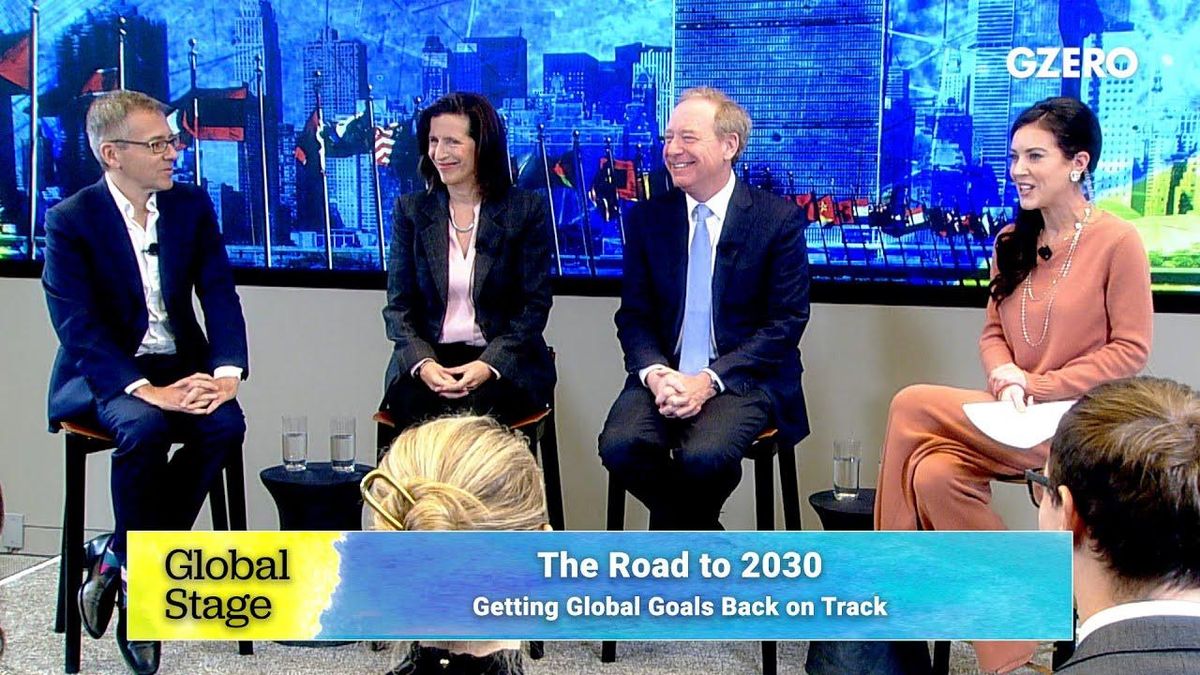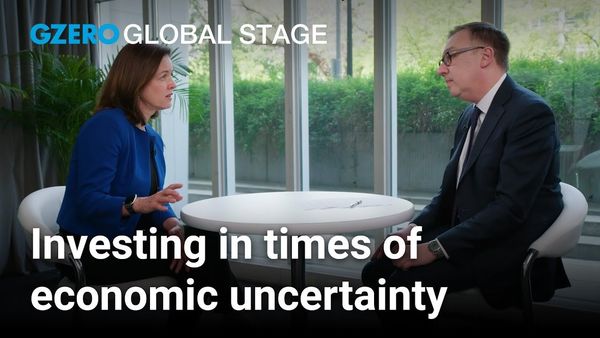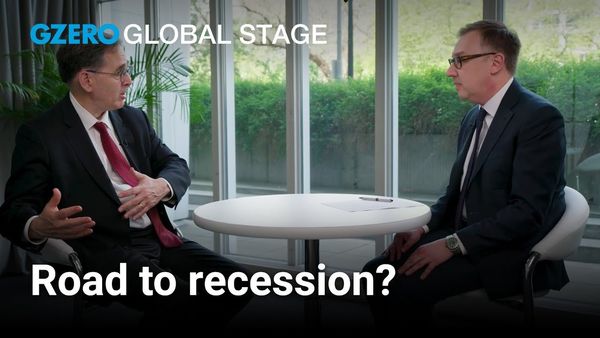2022 has been the year of converging crises: the ongoing pandemic, climate change, economic turmoil, and Russia's invasion of Ukraine. Lots of gloom and doom, indeed.
But in all these crises, there is an opportunity to bounce back with solutions to make the world a better place. Think of how the war in Ukraine united the West more than ever against a common enemy.
How? Good question. We asked several experts during the Global Stage livestream conversation "The Road to 2030: Getting Global Goals Back on Track," hosted by GZERO in partnership with Microsoft.
For Ian Bremmer, president of Eurasia Group and GZERO, the main reason for hope in 2023 is that this year some people realized that there are big problems worth fixing. Although we definitely live in a G-zero world with a vacuum of global leadership, he adds, we've also seen unprecedented Western unity that would not have happened without Russia invading Ukraine. Ian believes that resistance to a negotiated solution to the war will come from the developing world and that Elon Musk is definitely complicating things with how he's running Twitter.
Microsoft President Brad Smith discussed the UN Sustainable Development Goals, which at their halfway point he sees as a "glass half full, half empty" but questions how progress is being measured. Also, Smith sees Russia turning to civilians in Ukraine because its military is losing against Ukrainian soldiers, which he regards as the opposite of what the world agreed to do after World War II. On climate, he doesn't see things in good shape after COP27 but hopes today's multiple ongoing crises will push us to do more things together.
Melissa Fleming, the UN's Undersecretary-General for Global Communications, laments there is so much more to be done to make the world a better place next year, but there's so much lethargy amid all the gloom and doom. She also braces for Ukraine's tough winter as Russia targets the country's energy infrastructure. Fleming is worried about a disturbing spike in climate change disinformation, which has returned to the denial narrative when people most need to be informed about what's happening to the planet.
Khadija Mayman from the Whitaker Peace & Development Initiative underscores the need for young people in her community to get mental health support. Other types of support would be welcome, too — youth want to do the work, but they can't wait forever for jobs, so we need to help create businesses that'll employ them.
Hindou Ibrahim, co-chair of the International Indigenous Peoples Forum on Climate Change, says that we can't protect biodiversity without first recognizing Indigenous peoples' rights to land and access to finance. We must all be partners, she adds, and Indigenous peoples are the "CEOs" (chief ecological officers) of the planet's biodiversity.
Dr. Omnia El Omrani, Youth Envoy for COP27 and SDG Champion, resents how young people's voices are excluded from the global climate conversation while they are disproportionately impacted by the effects of climate change. She wants to create a space for young people to be able to shape their own futures without killing their dreams.
This livestream is the latest in the Webby-nominated Global Stage series, a partnership between GZERO and Microsoft that examines critical issues at the intersection of technology, politics, and society.
- COVID's impact on education and its long-term geopolitical consequences: Gerald Butts ›
- Who can solve the world's "emergency of global proportions"? ›
- Is the world coming apart? Drama at Davos ›
- Top Risks 2022: We’re done with the pandemic, but the pandemic ain’t done with us ›
- Russia freezing out Ukrainian civilians because it can't beat military, says Microsoft's Brad Smith - GZERO Media ›
- We can't fix climate change without protecting biodiversity, says UNFCCC official - GZERO Media ›


















